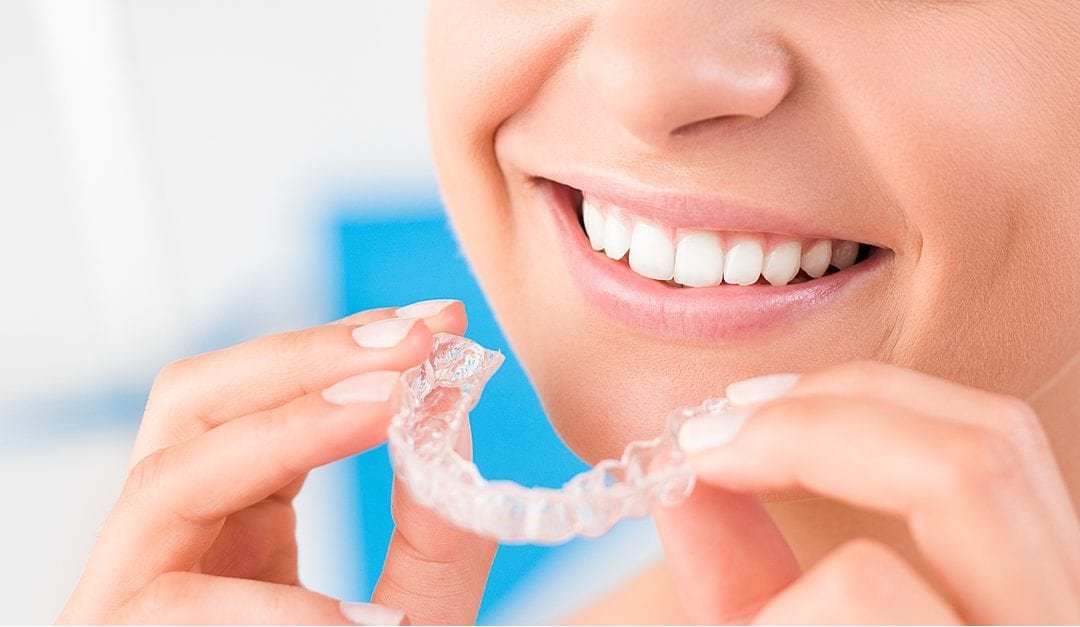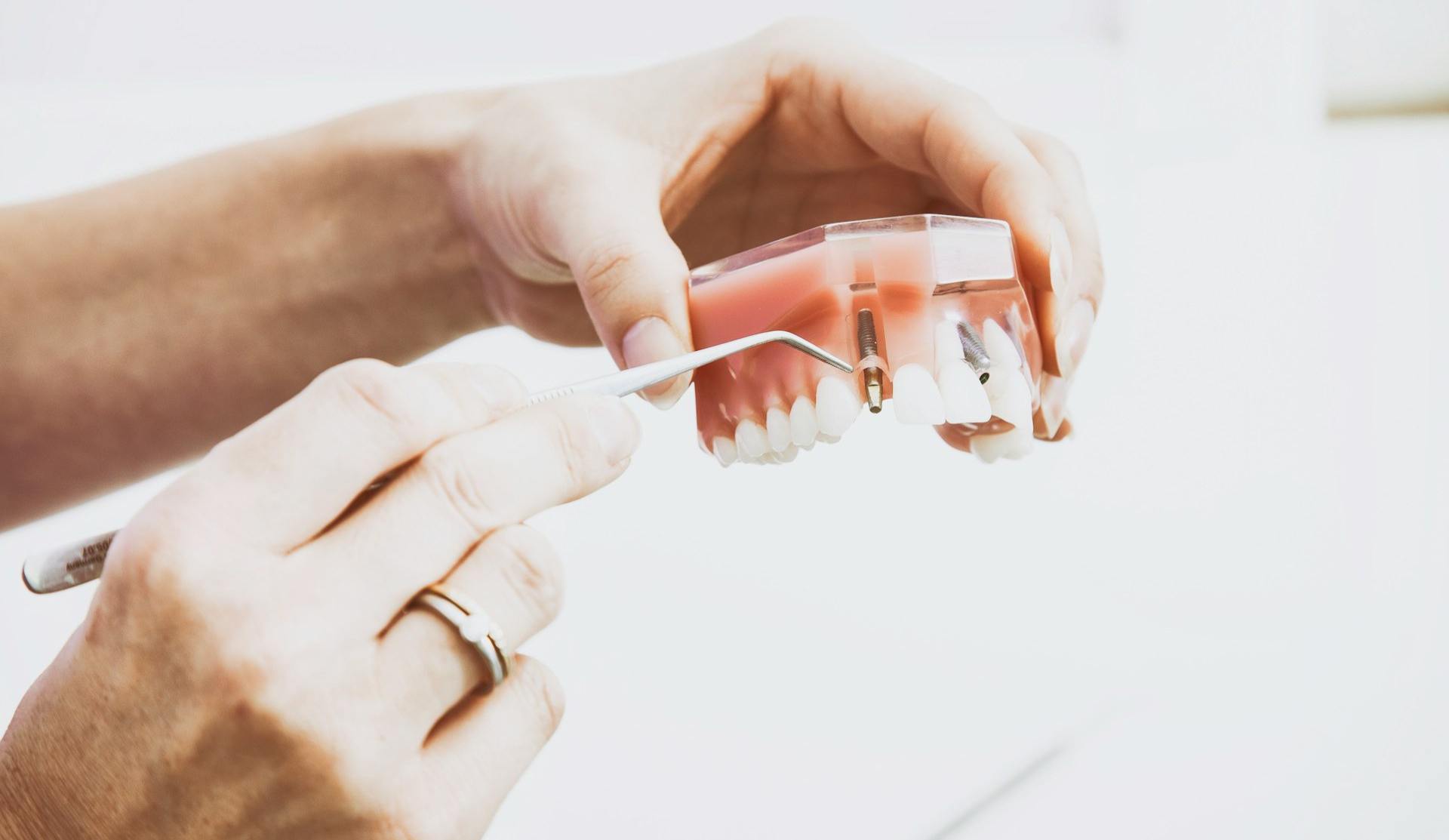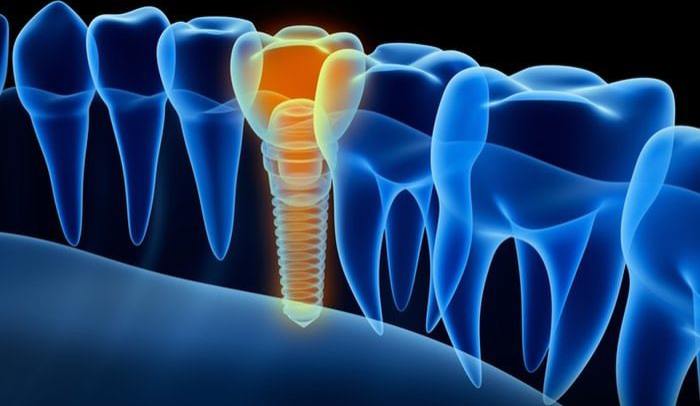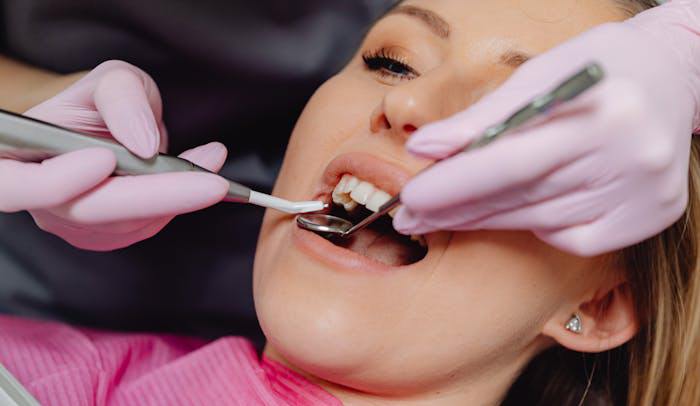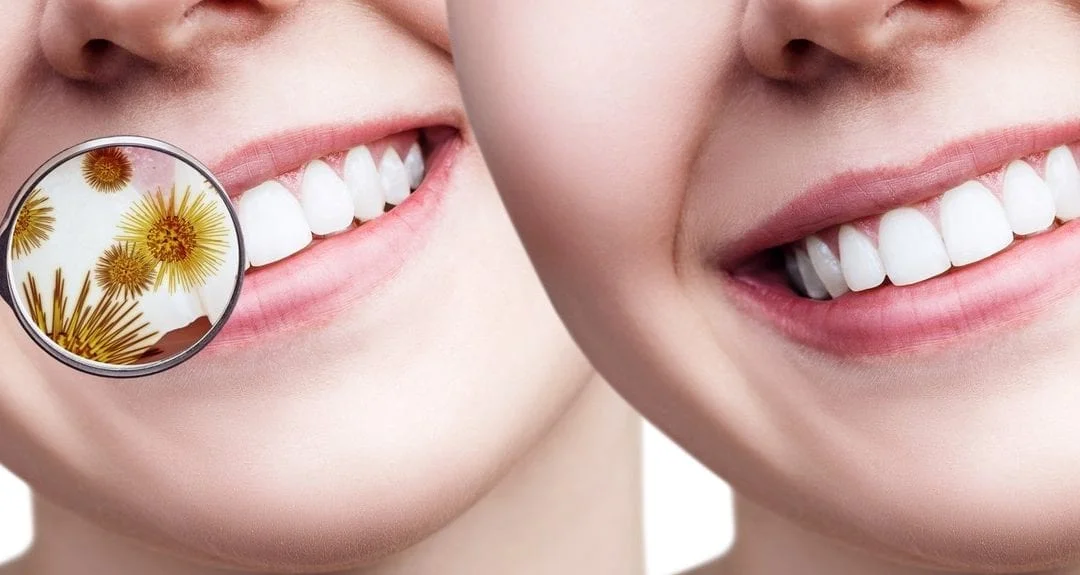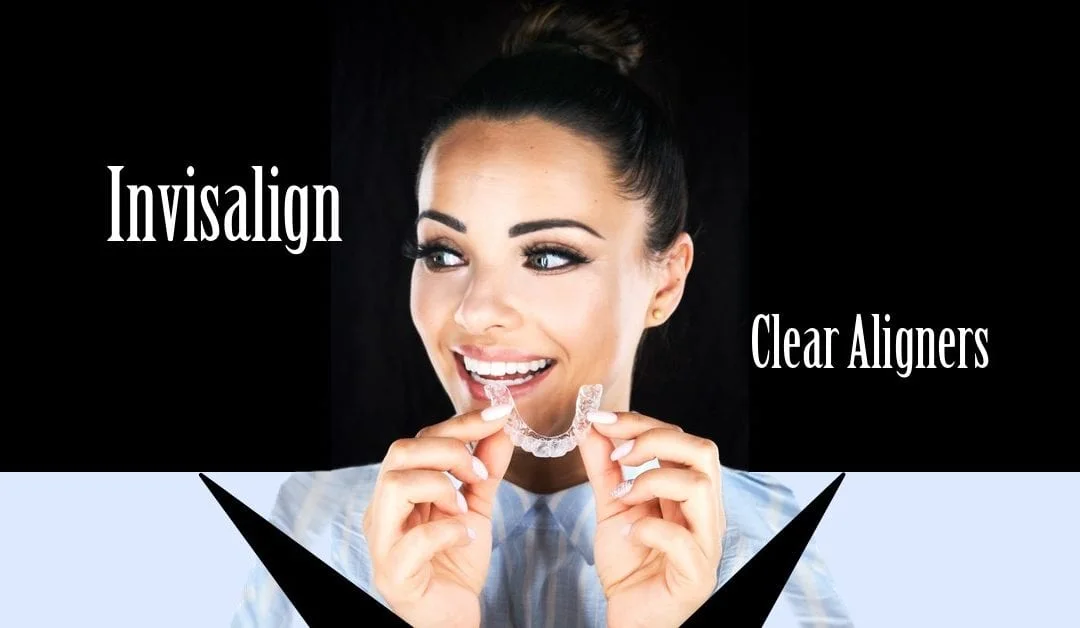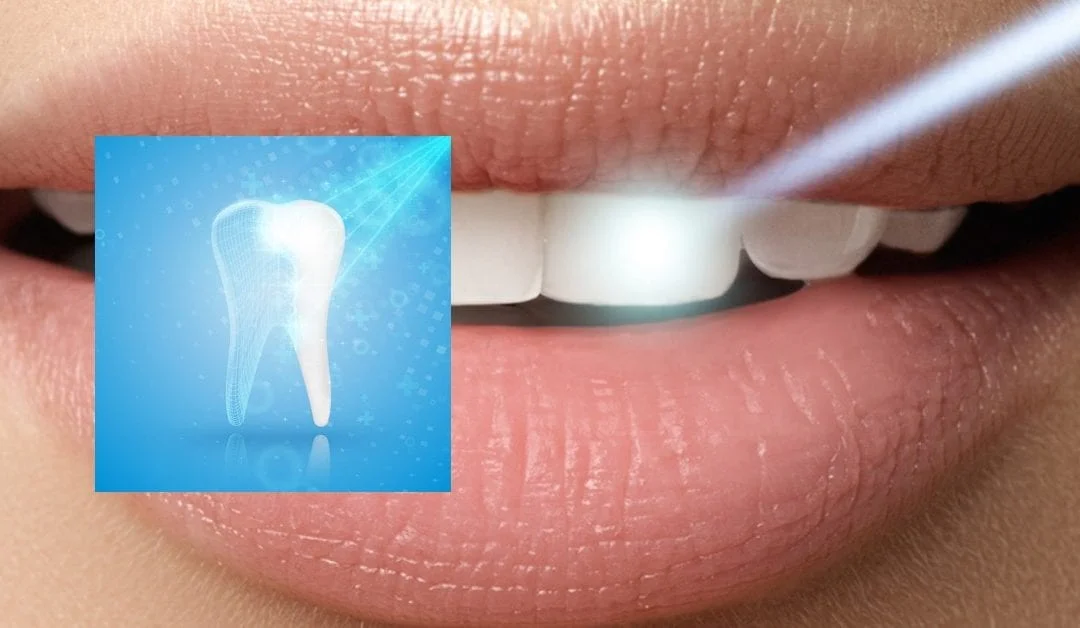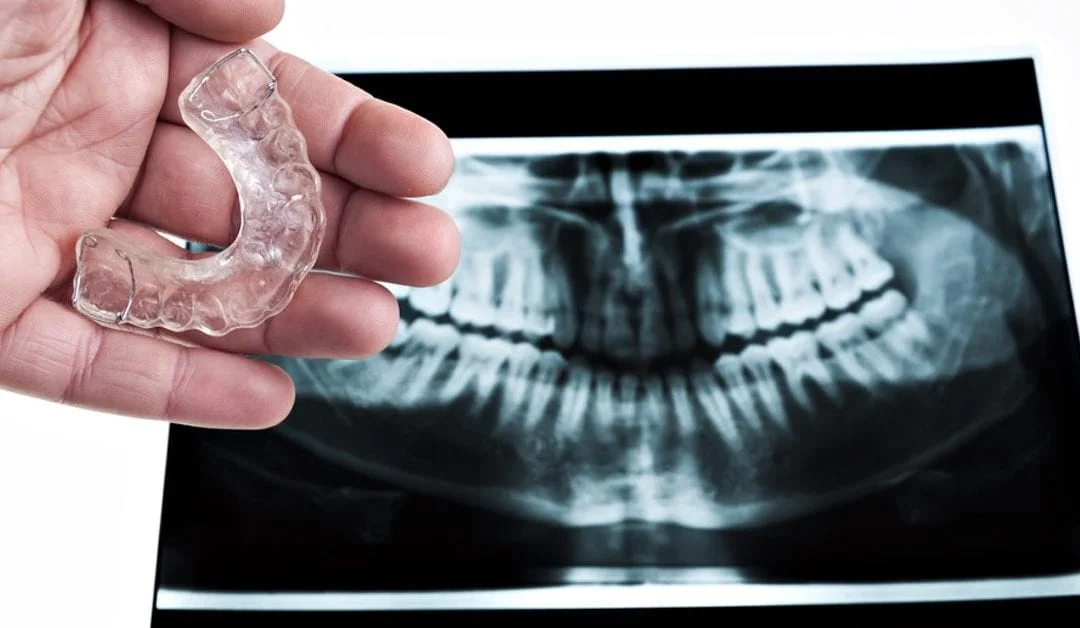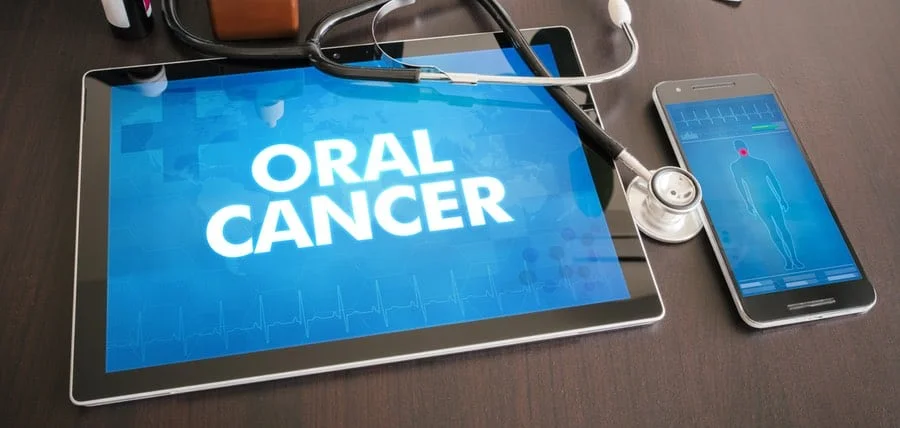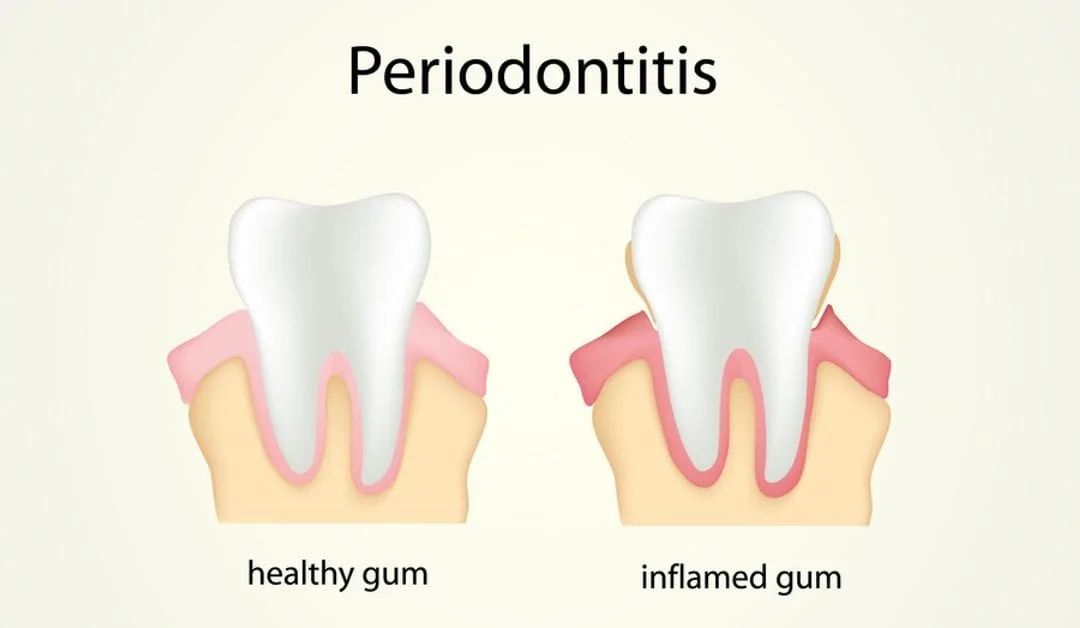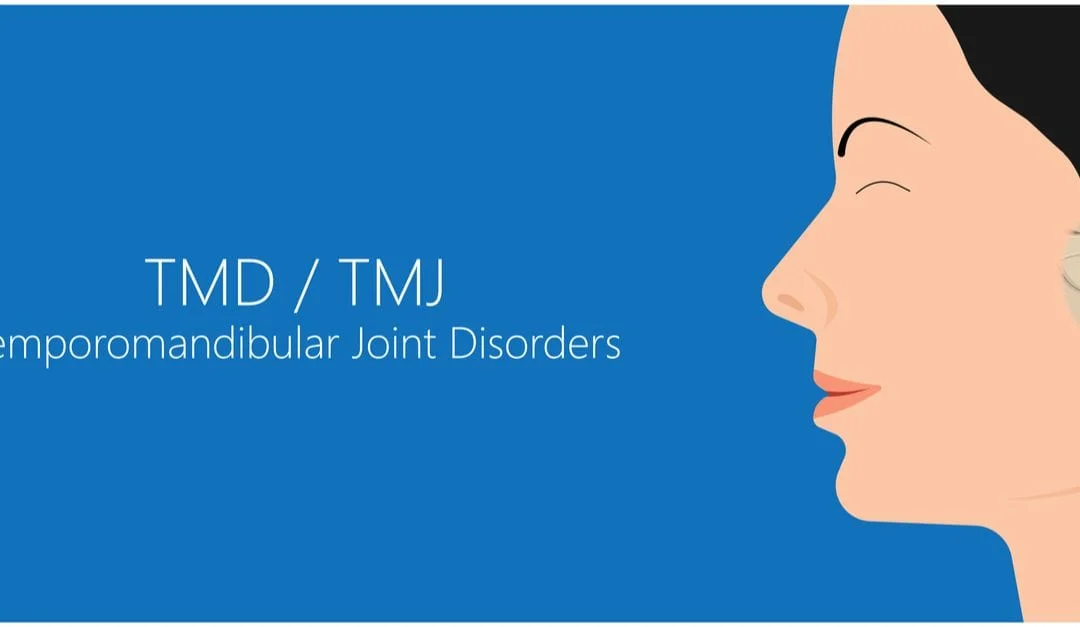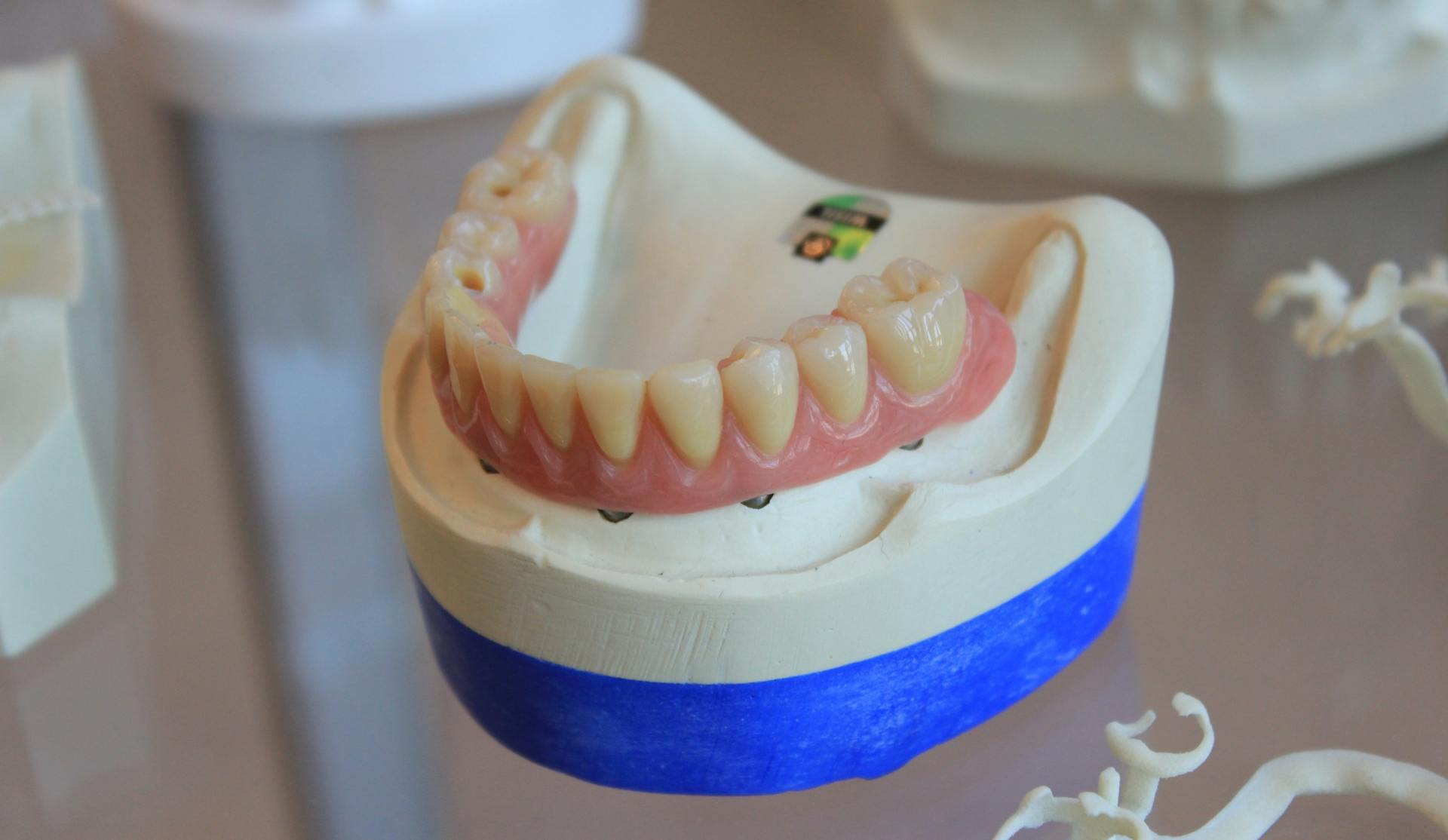
Table of Contents
Although it is always recommended to visit a dentist, below we would like to share a few natural techniques to cure gum disease without a dentist. They are not a cure; however, these preventative measures may help to prevent it or slow down the periodontal damage that this disease can cause to your gums, bones, and teeth.
What is Periodontitis Disease?
Periodontitis disease is a gum infection that begins with bacterial growth in the mouth. In this condition, plaque hardens around the teeth and causes swelling and redness. Periodontitis disease is preventable, but if not treated on time, it leads to tooth loss. The bacterial growth destroys the bone that supports your teeth or the underlying jawbone. The disease also causes many other oral health issues if left untreated. Gingivitis and periodontitis are two major types of this gum disease. Gingivitis is the earlier stage when there’s a mild tenderness in the gums. Periodontitis is the later stage, marked by bone and tissue damage. Maintaining good oral hygiene is essential to prevent the progression of periodontitis disease.
Symptoms of Gum Disease
Gum starts with a few symptoms that are easy to ignore. These include the following:
- Bleeding gums pre- and post-brushing
- Swelling in the gums
- Gums turning red
- Persistent unpleasant breath
- Receding gums
- Formation of deep pockets or spaces between your gums and teeth.
- Loose or moving teeth
- Pain when chewing food
Causes of Gum Disease
Gum disease has many risk factors that must be understood to address the problem. The major causes are as follows:
- Poor oral hygiene, which leads to plaque build-up and causes gum infection.
- A low-nutrient diet
- Smoking
- Chronic conditions like cancer, HIV, and diabetes
- Hormonal changes during puberty in girls
- Genetic factors
Types of Periodontitis Disease
Gingivitis and chronic periodontitis are the two most common forms of periodontitis disease. Besides, aggressive periodontitis and necrotizing periodontal disease are two severe and aggressive forms of this gum disease.
1. Gingivitis
Gingivitis is the starting stage of periodontal disease, which leads to swelling and redness in the gums. The gums bleed easily, but you won’t experience a lot of discomfort during this stage. A lack of proper oral hygiene routine causes gingivitis. It can be treated effectively with regular regular brushing and flossing.
2. Chronic Periodontitis
Chronic periodontitis is an advanced stage of gingivitis. In this condition, gingivitis spreads and causes the plaque to accumulate below your gum lining. The swelling persists and damages the connective tissues that support the bone around your teeth. The tissues separate from your teeth, and spaces appear between the teeth and gums. With the disease’s progression, the tooth turns loose and, ultimately, needs to be removed.
3. Aggressive Periodontitis
Aggressive periodontitis is a destructive condition that progresses rapidly. It typically develops during puberty in healthy children. Although aggressive periodontitis is a less common disease, it occurs in individuals because of genetics. The condition runs in families and is difficult to manage because it causes significant damage to the teeth in a short period.
4. Necrotizing Periodontal Disease
Necrotizing periodontal disease is a rare infection of the mouth that causes the death of tissues supporting the teeth. It is a very severe form of gum disease that fully destroys the tissues, ligaments, and bones around your teeth. Weak immunity, malnutrition, and genetics are the main causes of necrotizing periodontal disease. It is accompanied by symptoms like pain, unpleasant breath, and difficulty in chewing food and swallowing it.
How to Treat Gum Disease Without a Dentist?
Here are a few natural steps that can help you to cure gum disease without a dentist to maintain optimal oral health.
1. Brushing
Brush both morning and night as well as after meals. Rinse thoroughly with mouthwash.
2. Water Flossing
The pulsating water reaches deep in between the teeth and under the gum line. It helps to clean out plaque which can lead to the development of bacteria.
3. Baking Soda
Baking soda can be used to help maintain oral health. It helps to restore the acid balance inside your mouth which is essential. You can dissolve ½ teaspoon into 6 oz of water and use it as a mouth rinse. (do not swallow). Or you can wet your toothbrush and sprinkle the baking soda on it.
4. Hydrogen Peroxide
Hydrogen peroxide is an excellent antibacterial oral mouthwash rinse. It is commonly used in many over-the-counter mouthwashes. It must be diluted with lukewarm water.
5. Vitamins
Vitamin C, Flavinoids, Coenzyme Q10, Calcium, and Zinc supplements are known to help treat gum disease.
6. Green Tea
This is well known as the great healer and contains large amounts of antibacterial agents that cleanse the oral cavity.
7. Herbs
Echinacea, sage oil, peppermint, bloodroot, caraway, and menthol are good for the treatment of periodontal disease
8. Mouthwash
A great natural mouthwash can be made by mixing equal parts of peppermint, sage, and mint oils with a glass of lukewarm water.
9. Oil Pulling With Coconut Oil
This technique is becoming increasingly popular. Put a tablespoon of extra virgin coconut oil in your mouth and swish it around for approx. 20 minutes. By swishing around the oil, the bacteria gets swept away and dissolves into the liquid oil.
10. Diet
Certain foods high in calcium such as cheese are known to give your teeth the nutrients they need. Foods with high water content such as apples, celery, and watermelon produce saliva. This is one of the best natural ways to rinse away harmful bacteria.
These are the best natural ways to help you to prevent or slow down the periodontal disease. However, the best option is always to visit your dentist regularly. With the right cleanings and exams, a good dentist will be able to check your gums, bones, and teeth to see what stages of periodontal disease you may be at. With a combination of routine dental exams and proper at-home oral hygiene, you can stop and prevent periodontal disease.
When Should You Seek Medical Help for Gum Disease?
You should see a dentist when natural home remedies and an improved oral healthcare regime do not help relieve the symptoms of your gum disease. The following signs indicate that you need professional care:
- Bleeding and tender gums
- Unexplained bleeding from the gums after eating
- Pain in the gums
- Bad breath that does not go away
- Spaces appearing between your teeth
Bottom Line
If you are still wondering how to cure gum disease without a dentist, it’s better to Schedule an appointment with Dr. Lloyd Becker. The professional assistance with gum disease will help address all your underlying issues.
Our Service
-
 Dental Service
Dental Service
-
 General Dentistry
General Dentistry
-
 Cosmetic Dentistry
Cosmetic Dentistry
Comprehensive dental care ensuring healthy, radiant smiles for individuals and families in NYC.
Routine check-ups, cleanings, and preventive care to maintain your oral health effortlessly.
Enhancing your smile with advanced cosmetic procedures for a confident, beautiful appearance.

